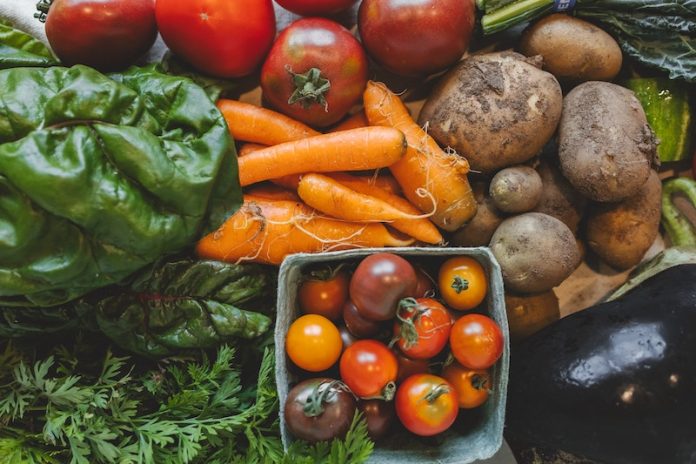
Eating more fruits and vegetables is a common recommendation for better health, but it’s easier said than done for many people, especially those on tight budgets or with limited access to fresh produce.
However, a recent study shows that when people get free fruits and veggies, they not only eat healthier but also show improvements in important health markers.
Let’s dive into how “produce prescriptions,” which give free fruits and vegetables, could be a game-changer for many Americans.
The Study: Free Fruits and Veggies for Health Improvements
A research team led by Kurt Hager, who was a student at Tufts University when he conducted the study, explored the health benefits of giving people free produce.
This type of program isn’t brand new, but it’s not widely available either. The researchers gave nearly 4,000 adults and children at risk for heart disease vouchers to buy fruits and vegetables.
The study took place across 12 states from 2014 to 2020. After participating, the people in the study reported better health, lower blood pressure, and better control of their blood sugar levels.
How This Connects to the Bigger Picture
This is part of a bigger conversation about how to help people eat healthier, especially in the U.S., where obesity rates are among the highest in the world.
While eating healthy is essential for everyone, it’s often more challenging for low-income families. Unhealthy food tends to be cheaper, and many have to choose between paying for quality food, rent, or medicine.
This study shows that giving people easier access to fruits and vegetables could be a simple yet effective way to tackle a complex issue.
Last year, even the White House started talking about “food as medicine.” They discussed plans to get rid of hunger in the U.S. within the next 10 years.
But despite this growing interest, most people still don’t have access to these produce prescription programs.
What This Means for Your Health
What’s great about this study is that it didn’t just show one or two health benefits. Participants saw improvements in several areas.
For instance, people with high blood pressure at the start of the study had both the top and bottom numbers go down by noticeable amounts.
Those with diabetes also saw a drop in their blood sugar levels. Overall, people felt healthier by the end of the study, and they also reported less worry about not having enough food.
Because the study didn’t have a comparison group, we can’t be 100% sure that all these health benefits came solely from eating more fruits and vegetables.
Some people could have started taking better medication or exercising more. But the researchers are optimistic that the produce played a big role.
The study also found that both adults and kids increased their fruit and vegetable intake. Adults ate almost an extra cup per day, and kids added a quarter-cup more per day to their diets.
This is promising because eating habits often start in childhood. So, getting kids to eat more veggies could set them on a path to better health for life.
Wrapping It Up
While this study is promising, there’s still work to do. Right now, these produce prescription programs are usually short-term and funded by special grants, so they end when the money runs out.
However, if more studies keep showing that giving out free fruits and veggies leads to better health, there’s a good chance that bigger programs, maybe even government-backed ones, will start to appear.
So, the next time you hear “eat your veggies,” you might also want to think about how we can make sure everyone can follow that advice. The health of a nation may very well depend on it.
If you care about nutrition, please read studies about how Mediterranean diet could protect your brain health, and the best time to take vitamins to prevent heart disease.
For more information about nutrition, please see recent studies that olive oil may help you live longer, and vitamin D could help lower the risk of autoimmune diseases.
The study was published in Circulation: Cardiovascular Quality and Outcomes.
Follow us on Twitter for more articles about this topic.
Copyright © 2023 Knowridge Science Report. All rights reserved.



